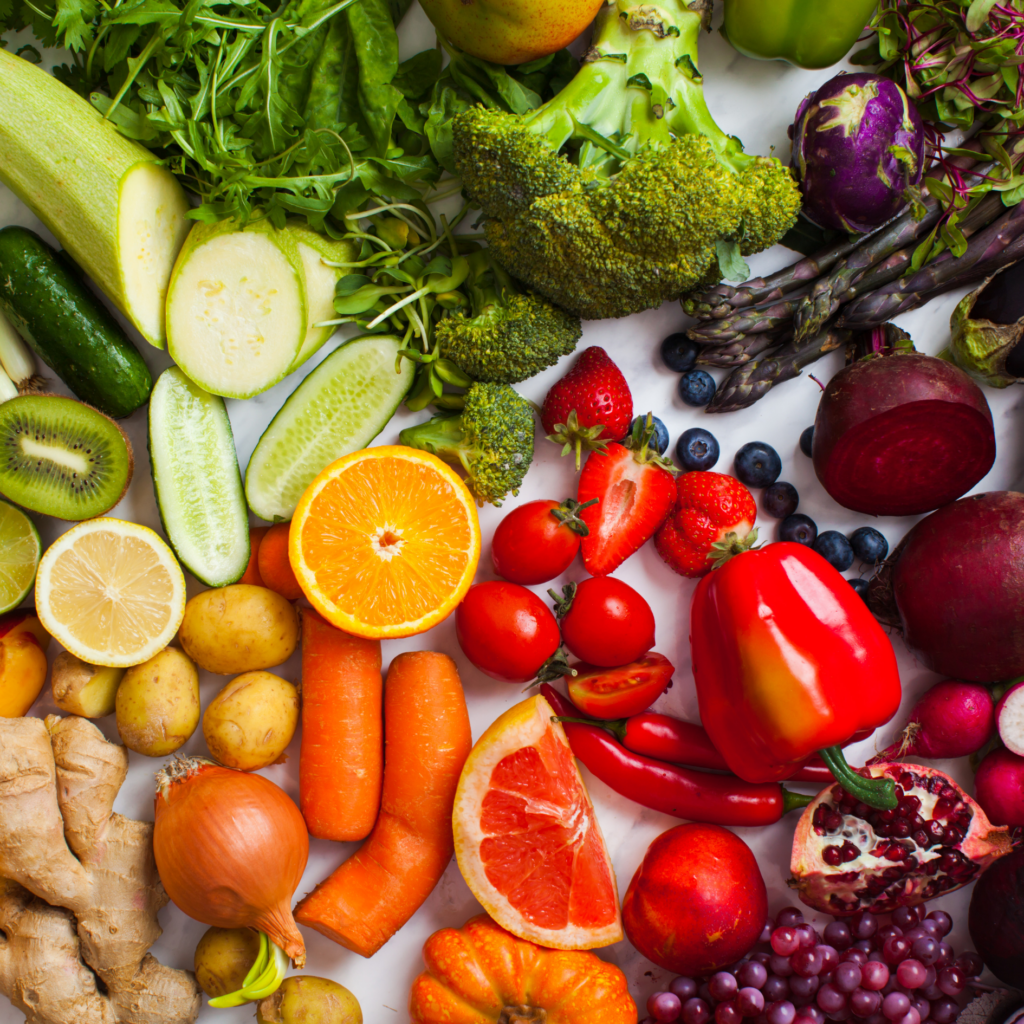We’ve all heard the phrase ‘5 a day’ but recent research suggests a new approach may be more beneficial.
Researchers found that people who consume at least 30 different plant-based foods each week had a higher diversity of microbes in their gut, which may contribute to improved overall health and well-being.
Diversity in our diet is important because different plant-based foods contain different nutrients that our bodies need. By consuming a wide variety of fruits, vegetables, whole grains, nuts, seeds, and legumes, we can better support our immune system. Eating a diverse range of plant-based foods is also an easy and effective way to support a healthy gut microbiome, which has a wide range of health benefits, including a reduced risk of chronic diseases such as obesity, type 2 diabetes, and inflammatory bowel disease.
So, what do we mean when we say “plant-based foods” and which ones count towards our “30 a week”? Unlike the 5-a-day guidelines, plant foods are not just restricted to fruits, vegetables, and legumes. They include whole grains such as brown rice and oats, nuts and seeds, and herbs and spices- all of which count towards the 30 a week.
And it gets better- tea and coffee count too! The catch is that each plant food you consume only counts towards your goal once over the whole week- this is what helps to encourage variety.
But don’t let the large number overwhelm you, start small! Even adding a few new fruits, veg or spices a week can increase your overall total. So why not start with colour’s… next time you’re in the supermarket try to shop for as many different colours as you can. Each colour contains different vitamins & minerals so you’ll be increasing the variety in your gut just by varying your colours.

So what does what exactly….
- Red fruits and vegetables, such as tomatoes, strawberries and red beans, are packed with vitamin C, vitamin A, potassium and antioxidants.
- Yellow/orange fruits and vegetables, including carrots, peaches, squash and pineapple, are also loaded with vitamin C, vitamin A and potassium. They can also boost the immune system and enhance vision.
- Mushrooms, bananas, onions and other white fruits and vegetables are good for the heart and help to control cholesterol levels.
- Green means lots of heart-protective potassium and vitamin K, which aids the blood clotting process. Green fruits and veggies also help to maintain vision health and strong bones and teeth.
- Dark green, leafy vegetables have the highest concentration of antioxidants and fibre.
- Blue/purple fruits and vegetables, including such favorites as cranberries, purple grapes, raisins and eggplant, boost urinary tract health and memory function and promote healthy aging.
Blog by Tabby Bond – Personal Trainer (TAB Fitness)

